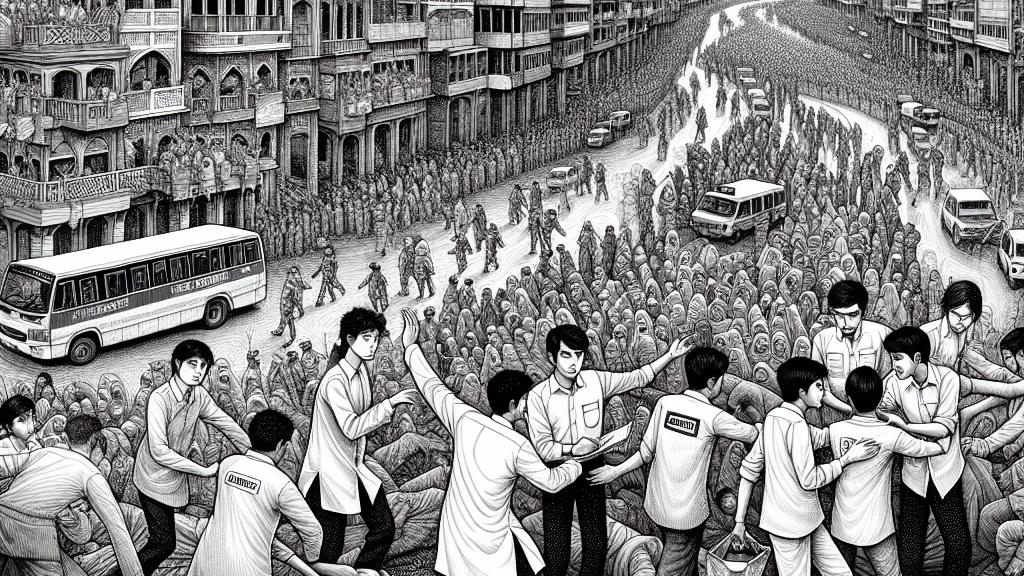Bangladesh on Edge: Students Step Up as Chaos Reigns Following Government Collapse!
Overview
- Youth take initiative in traffic management amid police absence.
- Political crisis leads to violent clashes, resulting in hundreds of deaths.
- Businesses urgently call for restoration of law and order to safeguard operations.

Unfolding Political Turmoil
Bangladesh is facing a critical juncture following the sudden downfall of Prime Minister Sheikh Hasina's government on August 5, 2024. This seismic political shift has sent shockwaves through the capital, Dhaka, and other regions, leading to an alarming breakdown of law and order. In the midst of this turmoil, the police have been largely absent from key duties, prompting students to take matters into their own hands. In an impressive display of community self-reliance, these young volunteers have stepped up to manage traffic flows and ensure public safety, showcasing their commitment to their society in a time of crisis.
Escalation of Violence and its Human Impact
The instability has escalated into widespread violence, with reports of over 469 fatalities connected to supporters of the former ruling party since protests erupted over a longstanding job quota system that many view as discriminatory. Originally ignited by student protests at Dhaka University, this unrest has spread nationwide, highlighting deep-seated frustrations regarding inequality and government favoritism. Clashes between demonstrators and pro-government factions, as well as armed police, have intensified, leading to significant casualties and allegations of police brutality. The actions of law enforcement—utilizing tear gas and rubber bullets—have fueled public outrage and calls for accountability, revealing a system under strain.
Economic Impact and a Call for Systemic Change
The civil unrest is inflicting severe damage on Bangladesh's economy, particularly within the garment sector, a critical contributor to the nation's GDP. Business leaders are voicing urgent demands for a restoration of order to protect their investments amid fears of vandalism and disruption. Simultaneously, there is a rising chorus from the youth and various societal sectors advocating for an end to the quota system that reserves a significant number of government jobs for the children of war veterans. This push reflects a yearning for a more equitable society where employment is based on merit rather than political connections. The crisis represents not just a demand for immediate stability but also a vision for a reformed and fairer Bangladesh, where all citizens have equal opportunities for success.

Loading...